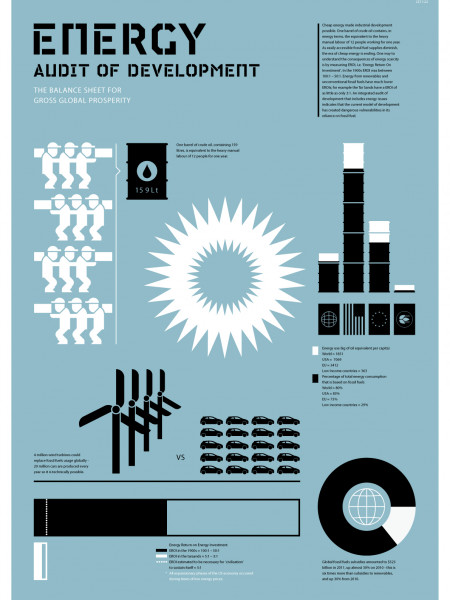
GGP-2.0: An Audit of Development - The Balance Sheet for Gross Global Prosperity
JZ1122 CGP-2.0 THE BALAICE SHEET FOR GROSS GLOBAL PROSPERITY AN AUDIT OF DEVELOPMENT OUT OF BALANCE – CRITIQUE OF THE PRESENT Science / Social / Cultural / Educational Institutions + Social Movements Radical redesign and transformation of the model of development conditions are sparking renewed deliberations on capitalism. Can humankind survive capitalism? The posters present a critique of a model of development that puts humanity on a crash course with oblivion. Radical change will be essential to create possibilities for survival. It is necessary to radically redesign economic The Balance Sheet for Gross Global Prosperity: planetary boundaries (biodiversity loss, climate dysfunctional in regards to the provision of gross global prosperity. Moreover, despite the dangers presented by the weakened resilience of social and ecological systems, the erosion of these GGP-2.0 presents a critique of the present with an audit of development based on an change and the nitrogen cycle). More scientific data on the state of global biodiversity is taken from the Millennium Ecosystem Assessment (2005). Information on socio-ecological issues integrated systems perspective. This audit reveals relationships within and between the social, energy and ecological systems. These three interdependent systems enable economic prosperity. Absurdly, the indicators of health for these respective systems are made invisible by the reductive focus on profit in economic policy systems is absent from balance sheets. The tools used by political systems to assess and correct systemic behaviour do not display social, energy or ecological factors. Thus we are ill prepared to deal with the risks created by these dynamics. was obtained from the Oxfam discussion paper by Kate Raworth titled; 'A Safe and Just Space for Humanity: Can we Live within the Doughnut?" (2012). Data on food systems is from the new report 'Global Food Waste Not, and political systems. These posters will be submitted to the Material realities are a foundation for ARCH+ and the Bauhaus Dessau Foundation and the ill-informed notion of GDP (gross domestic product). GDP is widely used as the primary indicator of a country's standard of living. In this Want Not' (2013) by the UK Institution of human prosperity. Ecological systems provide 'natural resources' (especially energy) but our methods of assessing the well being of the economy denies these ecological realities. These errors undermine prospects for long-term survival, much less prosperity. Due to these erroneous ways of understanding humankind's relationships with the true sources of prosperity, and exhibited in Haus der Kulturen (House of Mechanical Engineers. Energy data is from the Intemational Energy Agency, the Organisation World Cultures) in Berlin i Summer 2013. The graphics will also be used by The Occupied project, the antiquated GDP concept is revised for Economic Co-operation and Development (OECD) and the World Bank. Times (London) and will be distributed for free on associated websites and on the streets of London as a broadsheet. Following the into a more holistic model called: "Gross Global This research, based on work by scientific organizations, an NGO, a professional body of engineers and several international agencies, describes critical systems failures. Despite this fact, between 30-50% of food produced is simply wasted. These statistics reveal structural flaws in the current model of development. Prosperity' (GGP-2.0) that includes social, energy and ecological factors. This work illustrates strategies for evaluating GPP-2.0, visualising a dissemination of this audit of development, we will call for a coalition of scientific, cultural, new balance sheet of GGP-2.0. This project is based primarily on scientific research in Bankrupting Nature: Denying our Planetary Boundaries Club of Rome by Johan Rockstrom and Anders Wijkman. This book presents an overview of the ecological harm caused by industrial systems that are broaching at least three critical capitalism is a model of development that is parasitical on its hosts, i.e. the social, energy and ecological systems. Its accounting methods (such as the use of GDP) conceal this reality. GGP-2.0 reveals these hidden consequences. educational, non-govemmental institutions to support social movements around the world. We must work in solidarity in rejecting the premises of neo-liberal disaster capitalism with (2011), a report for The Can we consider the current model of its embedded contempt for collective social and ecological wellbeing. We call for a global general strike until the demands of social movements are met. development a success? The project proposes that evidence provided by these reports These graphics aim to inform public debate on the relative merit and legitimacy of the suggests neo-liberal capitalism is now highly current economic model. Converging crisis
GGP-2.0: An Audit of Development - The Balance Sheet for Gross Global Prosperity
Source
Unknown. Add a sourceCategory
EconomyGet a Quote








